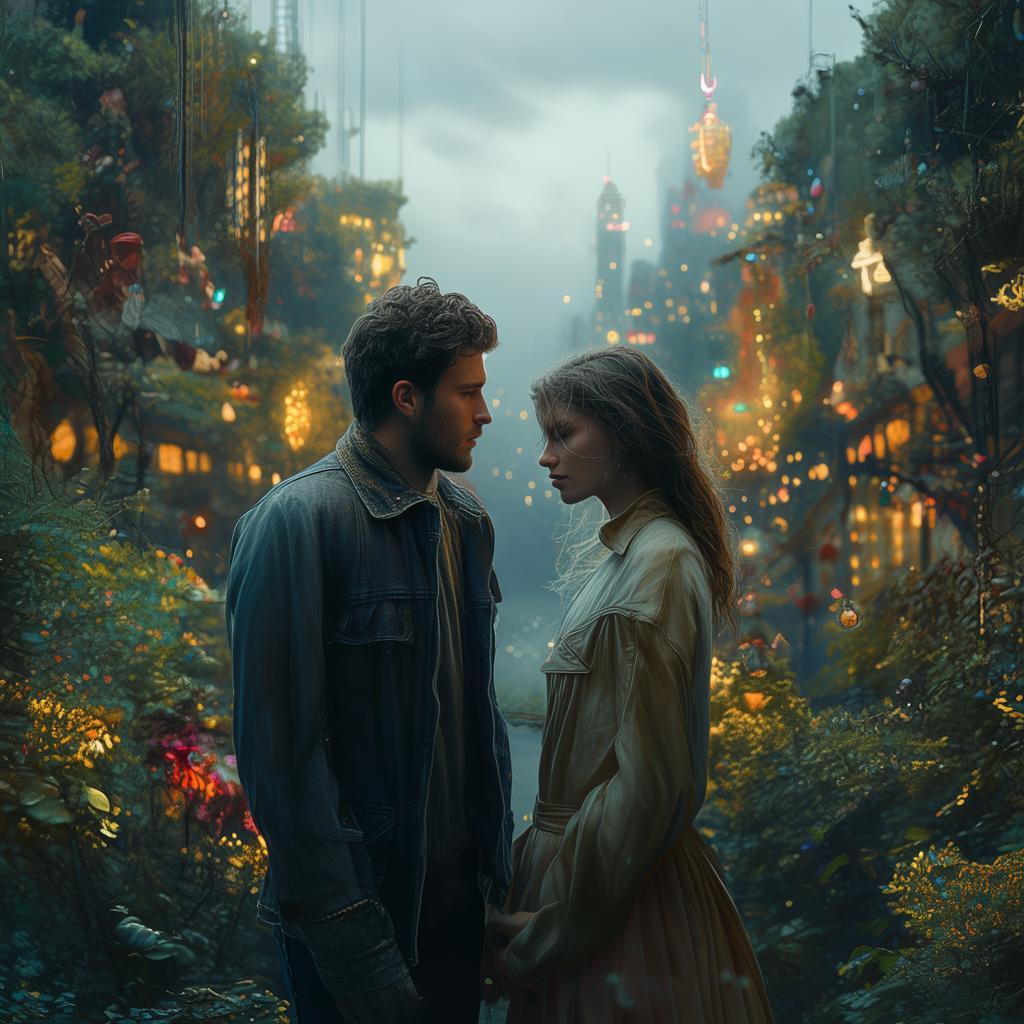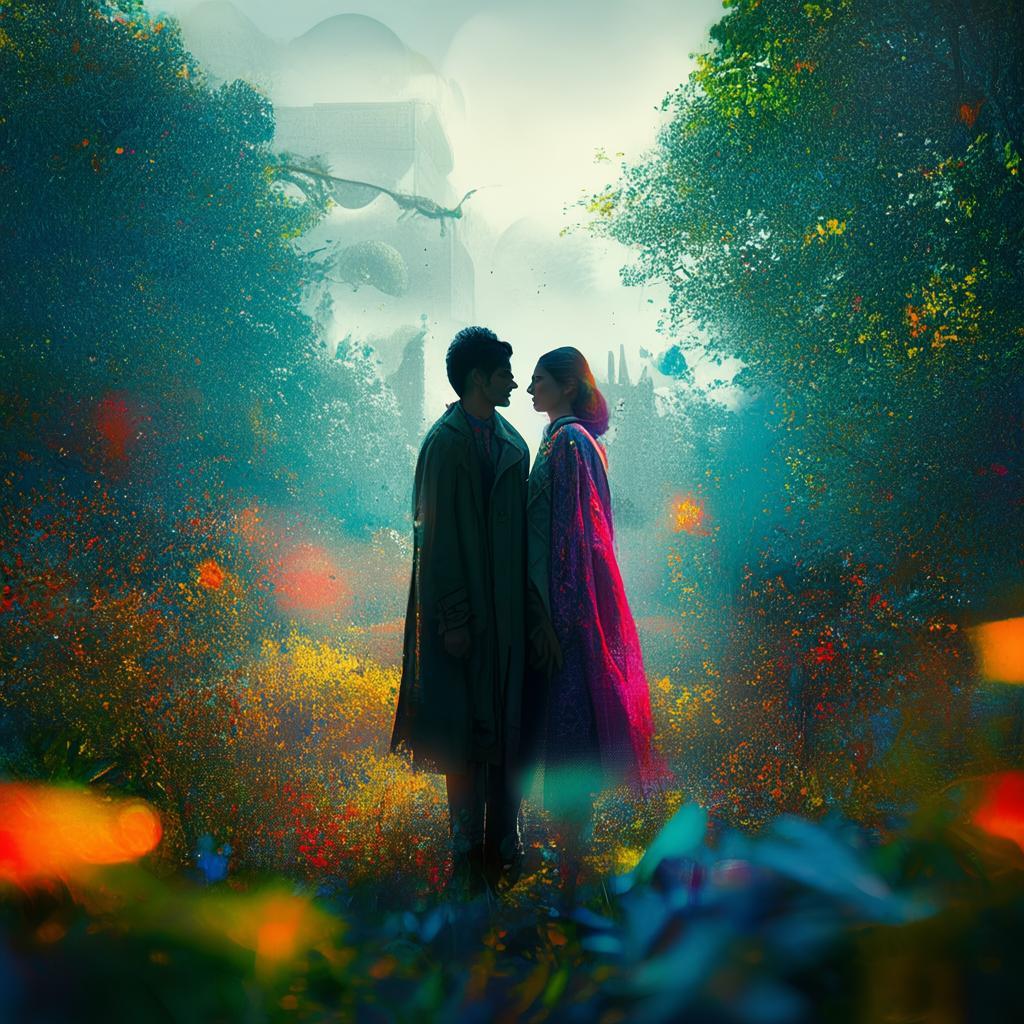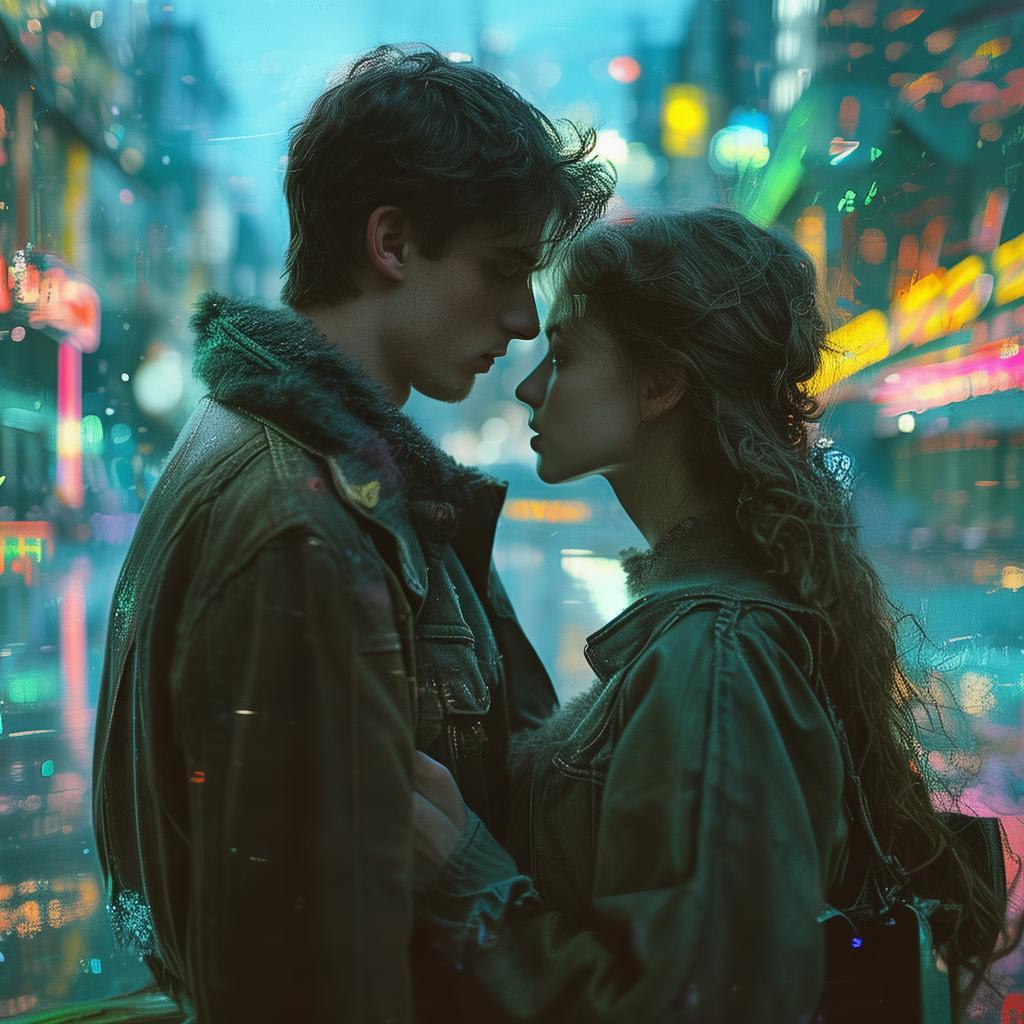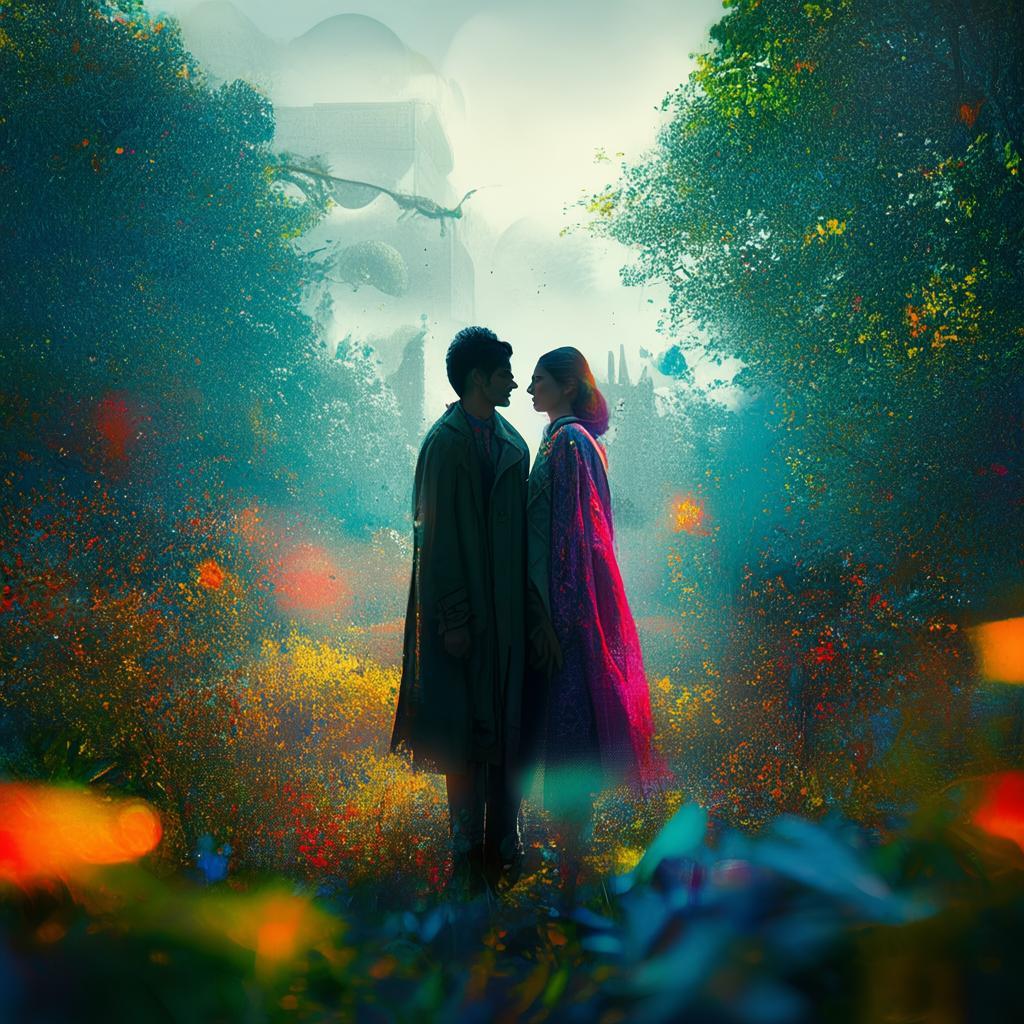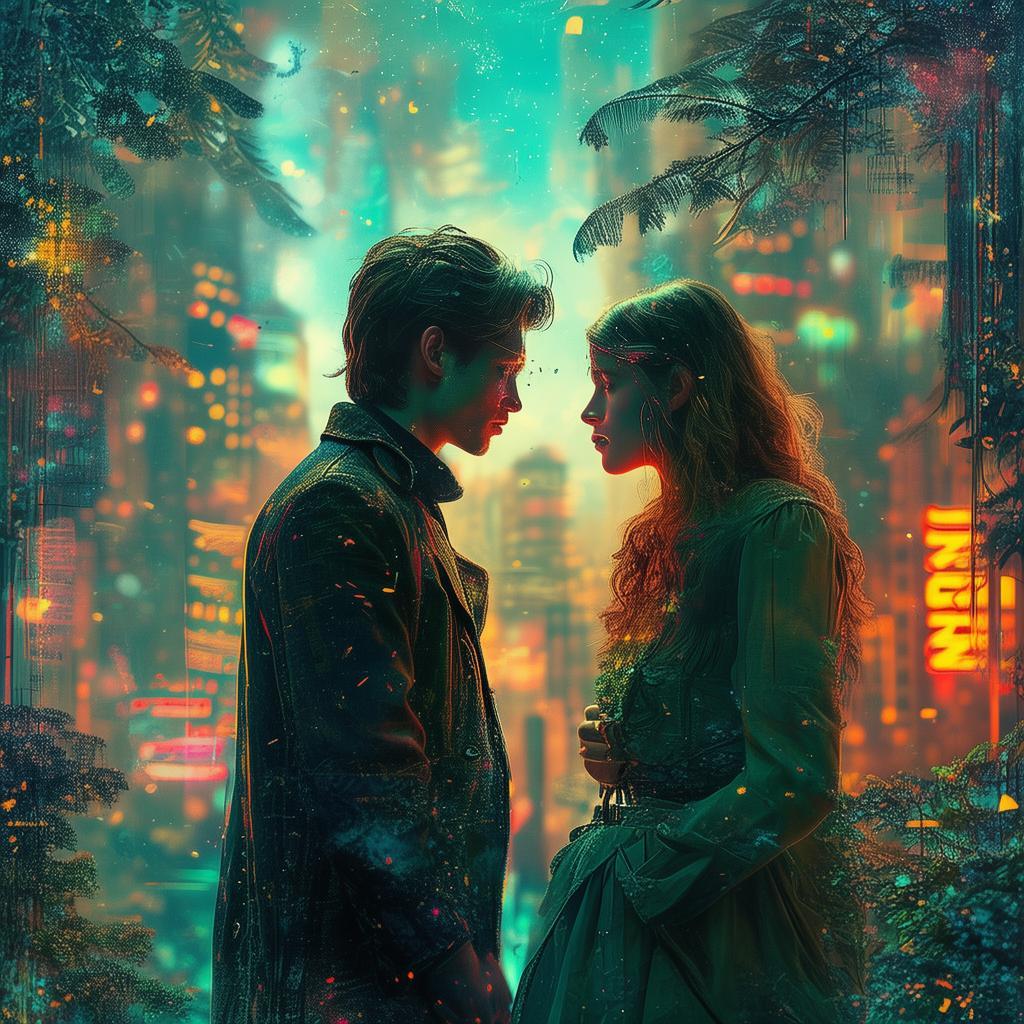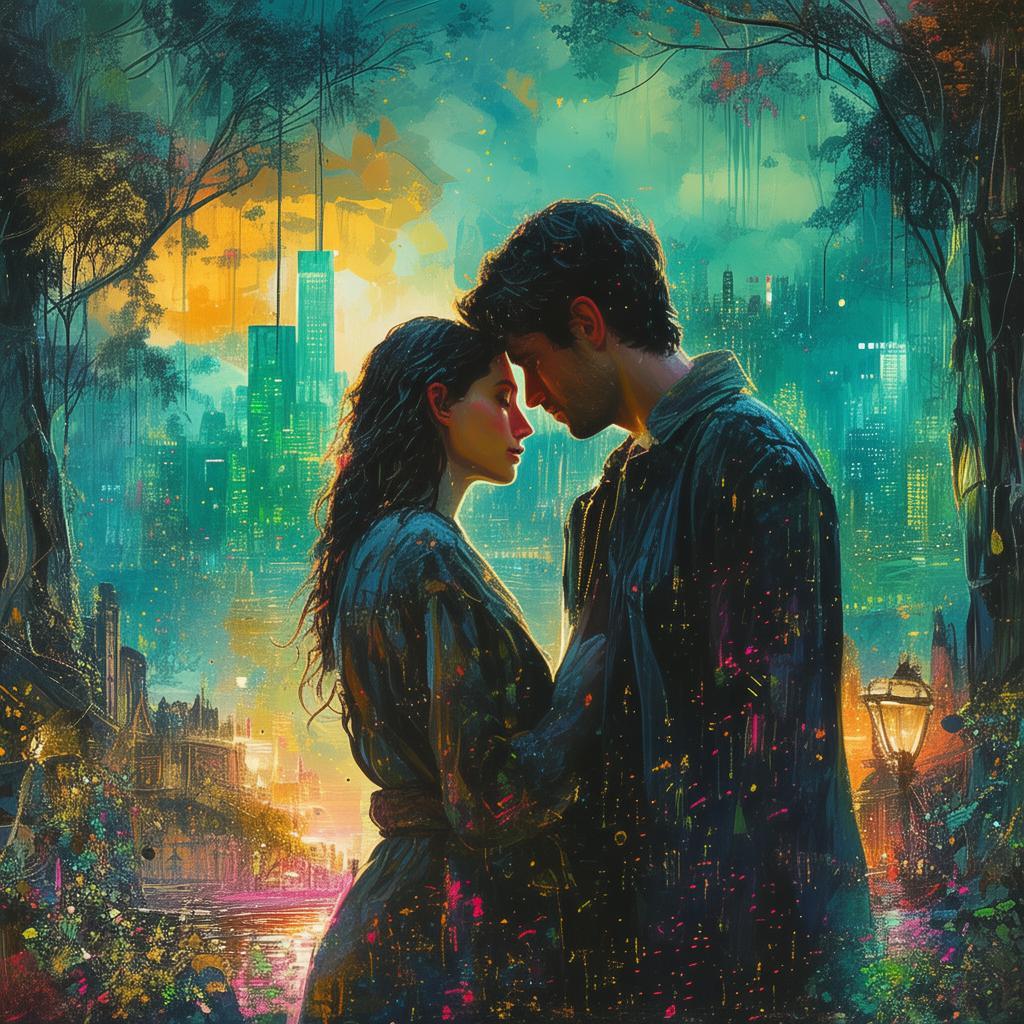Entwined Fates in the Kathakali's Shadow
In the heart of the bustling city of Kerala, where the air was thick with the scent of spices and the rhythmic beat of the tabla, there stood a dilapidated theater that had seen better days. It was here, amidst the creaking wood and the dust-laden air, that the Kathakali troupe performed their traditional dance-dramas. The troupe was known for its intricate makeup, expressive gestures, and mesmerizing tales, and among them was a young actress named Aaravathi.
Aaravathi was a beauty with a heart of gold, her eyes as expressive as the characters she portrayed. She had grown up in the troupe, learning the intricate movements and stories of the Kathakali with the same fervor as she had learned to walk. But there was a longing in her that the troupe's routines could not quell—a longing for something beyond the stage.
One evening, as the troupe prepared for their next performance, a man entered the theater. His name was Varun, and he was a visitor from a distant land. He was tall and strikingly handsome, with eyes that seemed to carry the weight of countless stories. He had come to witness the Kathakali, drawn by the tales of love and fate that danced to life on the stage.
As the performance commenced, Aaravathi was transformed into a character of the Kathakali—a woman caught in the clutches of destiny. The audience was captivated, their eyes fixed on her every move. But Varun, though he watched the performance with the others, was not there to see the art. His gaze was fixed on Aaravathi, whose beauty and grace were a mirror to his own inner turmoil.
After the show, Varun approached Aaravathi. "That was extraordinary," he said, his voice soft and filled with admiration. Aaravathi's heart raced at the sound of his voice, and she could feel the weight of his gaze upon her. "Thank you," she replied, her voice barely above a whisper.
From that night on, Varun and Aaravathi found themselves drawn to each other. They met in secret, their conversations filled with dreams and desires. Aaravathi felt a connection with Varun that transcended the usual bounds of romance; it was as if their souls were entwined by fate.
But as their love grew, so did the shadows that surrounded them. Aaravathi's troupe was in debt, and the theater's future was uncertain. Varun, it turned out, was a man of means, and he offered to save the troupe by investing in it. Aaravathi's family, who had longed for her to marry well, saw this as an opportunity to elevate their status in the community.

The proposal was made, and Aaravathi was torn. She loved Varun, but she was also aware of the power and influence he could bring to her troupe. In the end, she decided to accept his offer, believing that it was the only way to save the troupe and her family's honor.
Their wedding was a lavish affair, attended by the elite of the city. Aaravathi, now the wife of a wealthy man, stood before her family, her heart heavy with the weight of her decision. Varun, watching from afar, felt a sharp pain in his chest. He realized that the love he had felt for Aaravathi was not just for her beauty or her artistry, but for the woman she was—a free spirit, bound by tradition and circumstance.
The marriage was a facade. Aaravathi and Varun lived separate lives, their love forbidden and unspoken. Each night, Varun would visit the theater, where he would watch Aaravathi perform. Their eyes would meet across the distance, a silent communion between two souls that were meant to be together but were torn apart by the world they lived in.
As the days turned into weeks, and the weeks into months, Aaravathi's troupe began to flourish under Varun's investment. But the cost was her freedom, her art, and her heart. She began to see the truth of her situation, and her heart ached with the realization of her sacrifice.
One evening, as the troupe performed the story of a woman caught in the web of fate, Aaravathi could no longer contain her emotions. She stepped forward into the spotlight, her eyes filled with tears. "I am that woman," she whispered to the audience. "And I have been bound by the chains of tradition and love. But tonight, I break free."
With that, Aaravathi danced with the fervor of a woman who had finally found her voice. The audience was spellbound, and as she finished her performance, Varun stepped onto the stage. "Aaravathi," he said, his voice breaking. "You are the woman I have loved, the artist I have admired, and the soul I have yearned for. We were meant to be together."
Aaravathi and Varun ran to each other, their tears mixing as they embraced. The troupe and the audience watched in awe, witnessing a love that had triumphed over the bounds of fate and society.
In the end, Aaravathi and Varun left the theater and the world they knew behind. They traveled to a place where their love could thrive, where the Kathakali would be their only audience, and where their fates were no longer entwined by the shadows of tradition and society, but by the light of their own love.
And so, in the heart of the Kathakali's shadow, a love that played in the playhouse found its true home.
✨ Original Statement ✨
All articles published on this website (including but not limited to text, images, videos, and other content) are original or authorized for reposting and are protected by relevant laws. Without the explicit written permission of this website, no individual or organization may copy, modify, repost, or use the content for commercial purposes.
If you need to quote or cooperate, please contact this site for authorization. We reserve the right to pursue legal responsibility for any unauthorized use.
Hereby declared.
